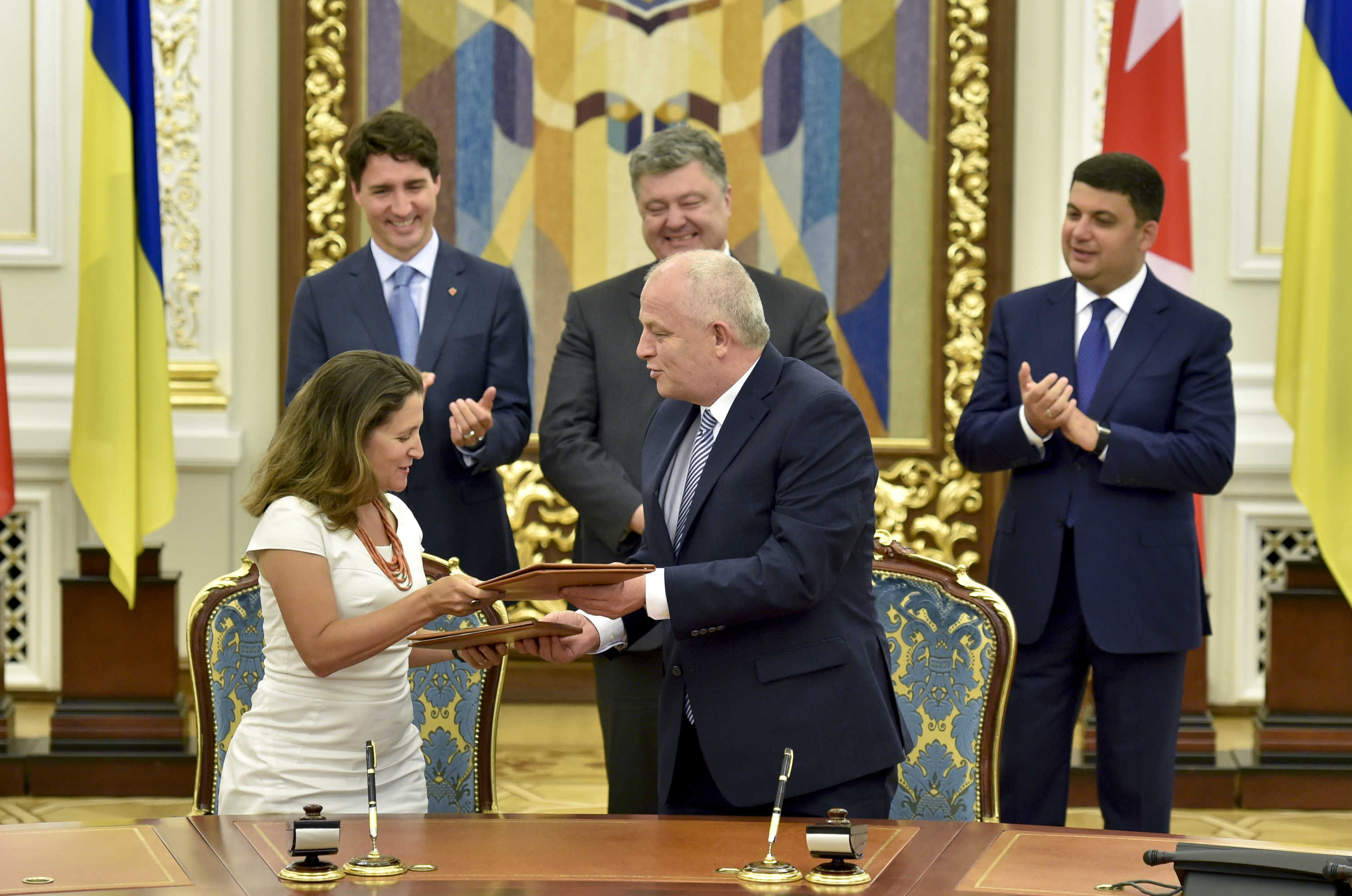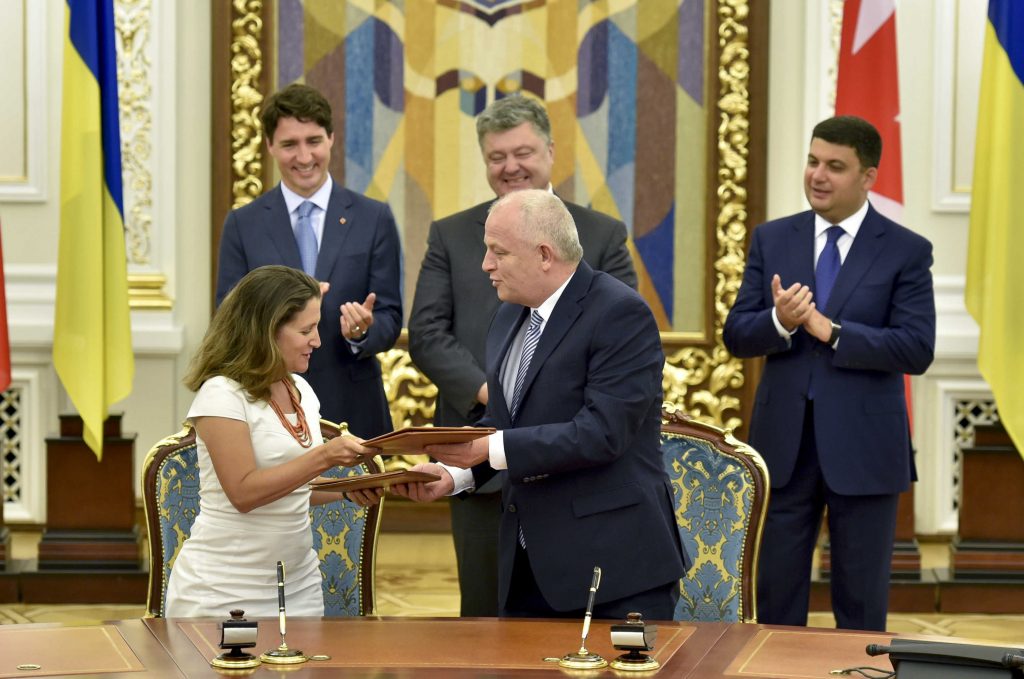
American, Canadian, and European Investors Quietly Descend on Kyiv
Chestnut trees shade the streets, restaurants colonize sidewalks with “summer verandas,” and hemlines rise with the temperatures.
Yes, it is summer again in Kyiv.
But this summer, this garden city is seeing a new, discreetly invasive species: American and European investors who believe Ukraine is turning around.
Some flourish in the shade.
“Don’t tell my competitors—if they want to keep going to China, let them,” said Alain, a French IT company manager who was boarding an Air France jet for the three hour flight back to Paris. “Programmers in Ukraine are better than in China, more innovative than in China, and cheaper than in China.”
A new study by Horizon Capital shows that Ukraine graduates 130,000 engineering students every year, almost twice as many as Britain. But IT salaries here are about one third the British level. As a result,
Ukraine is now Europe’s leading country for IT outsourcing work.
In June, Tim Ash, the Nomura Bank economist, brought five asset managers from London to Kyiv for closed-door meetings with top government officials and business executives to assess Ukraine’s potential.
“They don’t like publicity,” Ash emailed of the managers who collectively represent several trillion dollars.
At Avalon Restaurant, an elite meeting place near the German embassy, one London-based international investment facilitator said, “In twelve weeks, I have gotten more queries and assignments than in the last twenty-four months. These guys have no interest in publicity. They want to buy cheap, and get set up here before their rivals do.”
At the British embassy, an economic official said that during the first half of this year, his office received inquiries from 157 British companies interested in trading or investing in Ukraine. In western Ukraine, a tight labor market in Lviv is pushing investors to look at locating factories in secondary cities near the EU border.
In the locker room of a hotel fitness center, an Austrian banker was recently slipping a copy of the Economist into his swim bag. “Yes,” he answered cautiously. “We are getting more Austrian companies here. But right now, they are just looking around.”
Other investors flourish in the sunshine.
Doug Casey, an Aspen-based financial author, is a self-described “blood in the streets” investor. He says he’s very interested in Ukraine, both as a speculator and an investor.
After a visit here in late June, he noted that Kyiv is a ten-hour drive from the separatist region.
“[People] think of it as a warzone, but the secession in the Donetsk and Luhansk provinces doesn’t affect the rest of the country,” he said. “[Kyiv] is a beautiful city. It’s a delightful place to be, totally undiscovered, and very, very cheap.”
A similar view came from Roderick Robinson, managing partner of Briggs Capital LLC, a fund based in Dedham, Mass., near Boston. His Ukraine visit coincided with the shock of the June 23 Brexit vote. But his view remained optimistic.
“A new culture of determined entrepreneurs is finally emerging that can be trusted,” he said of the generational turnover taking place here. “The old guard, with their misconceptions of a free economy, is slowly being sidelined. New, trusted Ukraine business owners of small to medium-sized firms are operating in a westernized fashion.”
Investors believe that, twenty-five years after Ukraine’s independence, a new reality is gradually taking shape here. Western leverage is allying with Ukraine’s new generation to strengthen property rights and improve the rule of law.
Paul Collison, a Barcelona-based investor, got burned on a Ukraine investment a decade ago. This summer, he is spending one month here, analyzing obstacles—and opportunities.
“One ongoing challenge is the difficulty in finding reliable, high-quality owner and management teams that take a long-term view to grow their companies, and that includes proper treatment of debt and equity stakeholders,” the US-educated investor emailed in advance of his mid-July arrival. “There may be a better mentality with the younger generation involved, for example, in technology-related industry.”
At the European Union Mission here, one diplomat voiced a similar cautious optimism. He said there now is a “queue” of European companies in various stages of engaging with Ukraine.
“I would describe the current flow as a careful one, but already there is less fear among potential investors, who are realizing that the security situation in Ukraine influences only certain territories, while the rest of the country is stable,” he said. “The biggest obstacles for a more massive influx of FDIs are corruption and red tape.”
At the annual July 4 picnic of the American Chamber of Commerce in Ukraine, Vadim Sidoruk, country manager for DHL, was fairly bubbling with optimism.
“The West is popping—new companies are opening all the time,” Sidoruk said of new small and medium startups using his international delivery service. “But many do not want publicity. They just want to grow their businesses without attracting attention.”
At mid-summer, the most striking demonstration of Western support for trade and investment for Ukraine is coming from Canada.
On July 10, Prime Minister Justin Trudeau and Chrystia Freeland, Minister of International Trade, arrived here to sign a Canada-Ukraine free trade pact. This followed the first Canada-Ukraine Business Forum, an event held on June 20 in Toronto and attended by representatives of 250 Canadian companies and 150 Ukrainian companies.
On July 7, as the lights burned late in the Canadian Embassy in advance of the visit, Ambassador Roman Waschuk took time out to talk about investment opportunities.
“We are seeing a very different profile from the slightly more mom and pop operations of the 1990s,” said Waschuk, a member of Canada’s one million strong Ukrainian diaspora. “We are seeing major investment funds and people in infrastructure interested in Ukraine.”
“What impressed the Canadians was the quality of a lot of the Ukrainian presenters,” he said of last month’s forum in Toronto. “As you have the new generation of Ukrainian officials who are able to discuss and package properties and deals in ways that are understandable to Western fund managers, you have these [Canadian] fund managers taking a second look at Ukraine.”
“You will see in the days and weeks to come there are Canadian companies who have identified niches and who are moving to lock in relationships, for example in the aerospace sector,” he said. “[They] realize there is potential for Canada and Ukraine to work together on high end products for sale to third markets.”
By the time Kyiv’s chestnut trees turn gold this fall, the secret may be out that Ukraine is Europe’s new “frontier market.”
James Brooke, a veteran foreign correspondent and a UkraineAlert contributor, will launch the Ukraine Business Journal, a subscription website devoted exclusively to business news about Ukraine.
Image: On July 11, Canada and Ukraine signed a free trade agreement in the presence of Ukraine’s President Petro Poroshenko and Canada’s Prime Minister Justin Trudeau. Ukraine’s Minister of Economic Development and Trade Stepan Kubiv and Canada’s International Trade Minister Chrystia Freeland exchanged signed copies of the agreement. Credit: Presidential Administration of Ukraine.
